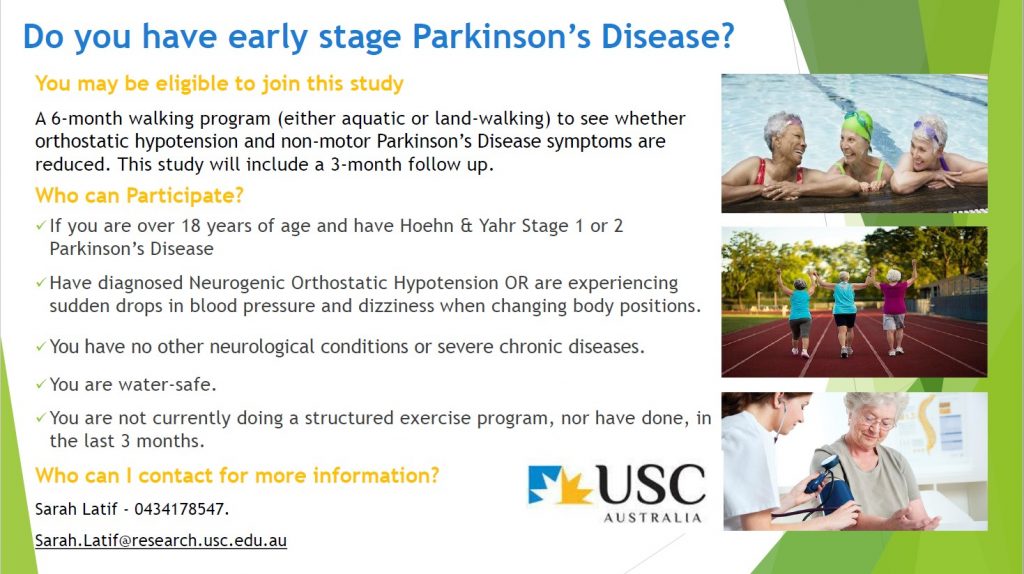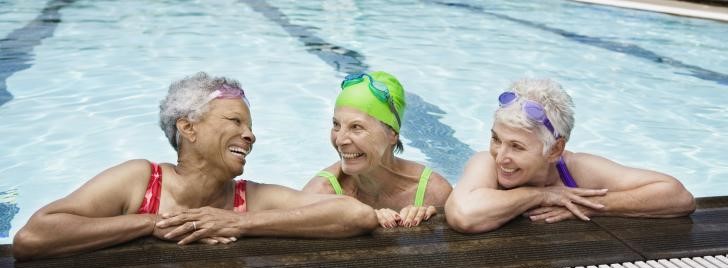Effects of aquatic and land-based walking on Neurogenic Orthostatic Hypotension and Non-Motor Symptoms in early-stage Parkinson’s Disease

Research states that the non-motor symptoms (NMS) of Parkinson’s Disease (PD) are just as detrimental, if not more detrimental to the quality of life when compared to motor-symptoms (MS), in particular, neurogenic orthostatic hypotension (nOH). nOH is a sudden drop in blood pressure when standing up from a sitting or lying position. It can increase the risk of injurious falls.
nOH is often underdiagnosed and prevalent in up to 89% of PD cases, and the medications used to treat nOH and other NMS produced unwanted side effects contributing to reducing the quality of life in individuals.
Walking is a safe and effective exercise for people with PD, and there is some recent evidence that suggest that aquatic walking provides benefits for a variety of other neurological conditions.
Further research is required to investigate whether land-based and aquatic walking provides physical benefits and reduces the NMS of PD and in particular, nOH.
If you have been diagnosed with early stage PD (Hoehn and Yahr Stages 1 or 2), and are interested in participating in a walking program with other early stage PD patients at the University of the Sunshine Coast, please contact Sarah Latif for further information and enquiries.
Find out more:
If you are interested in participating in this study then please contact the following person:
Sarah Latif
Phone: 0434 178 547
Email: Sarah.Latif@research.usc.edu.au
This project has been approved by the University of Sunshine Coast Ethics Committee S211557

